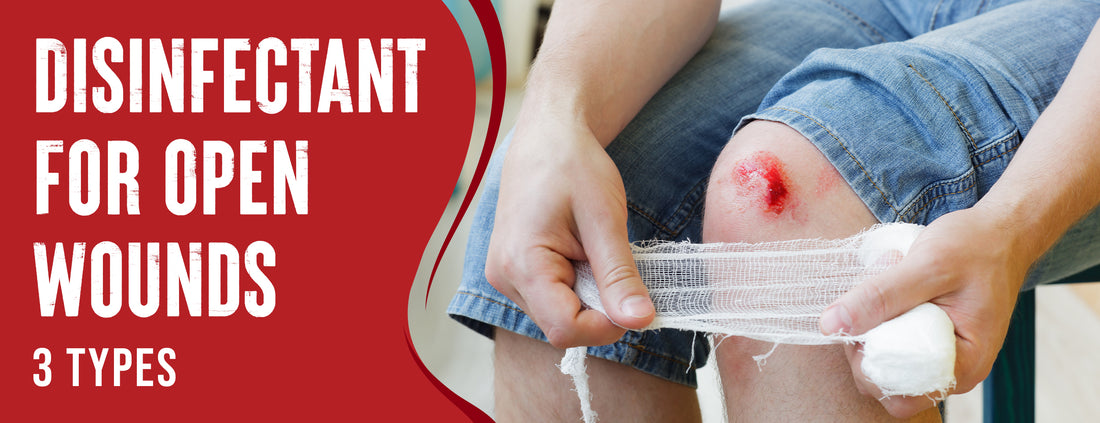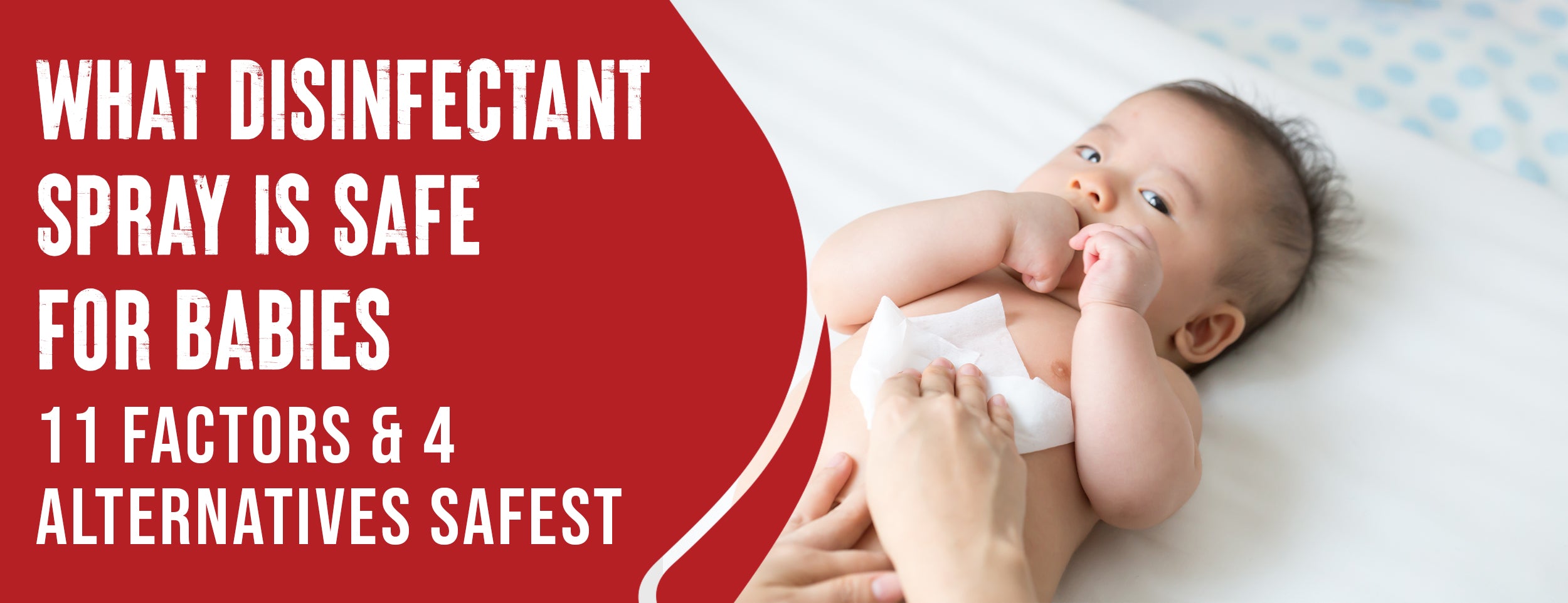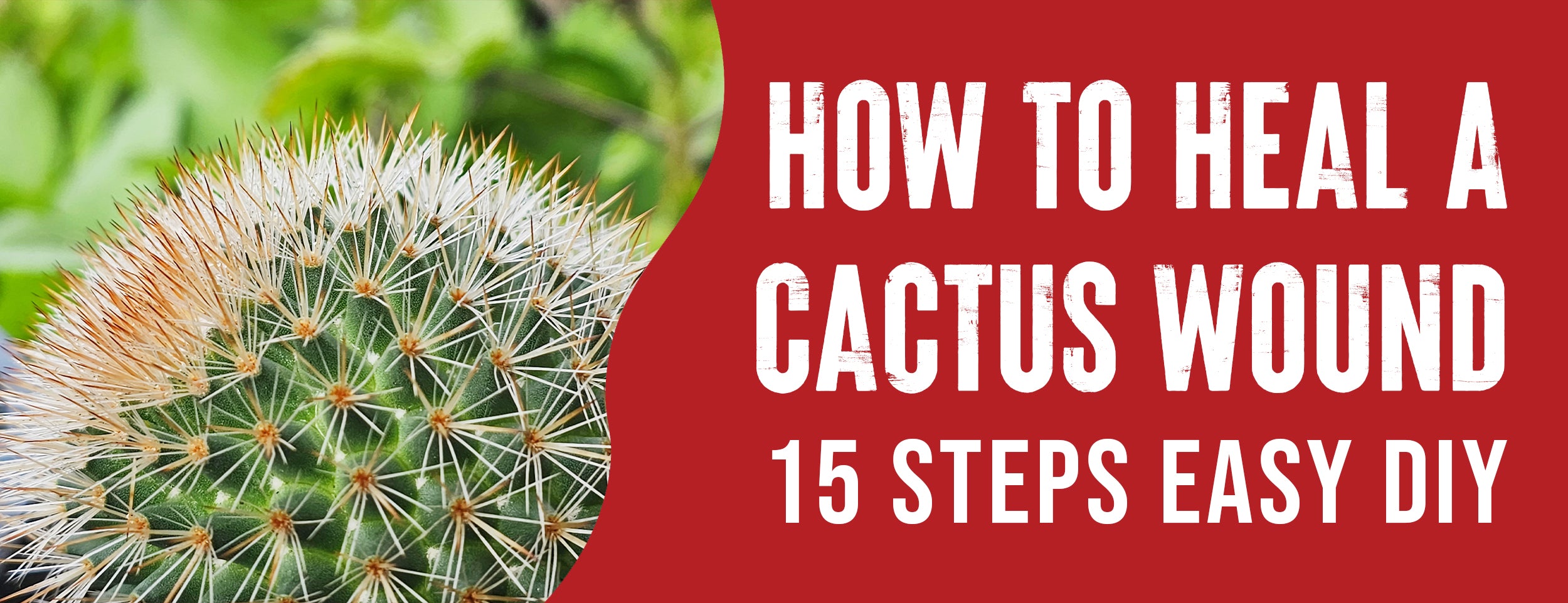Open wounds are painful and can lead to serious complications. While disinfectants may seem the obvious solution to prevent infections, these products can be dangerous for open wounds.
Disinfectants have been known tocause tissue damage, delay healing, and even lead to blood vessels and nerve damage. Open wounds pose risks and drawbacks, even though povidone-iodine and hydrogen peroxide may be tempting to use immediately.
This blog post explores why disinfectants harm wound healing and what alternatives can be used for safe and effective wound care.
Disinfectants for Open Wounds: 3 Types

The various disinfectants for open wounds include hydrogen peroxide, iodine, and chlorhexidine. Certain disinfectants like alcohol and Betadine (povidone-iodine) are dangerous for open wounds as they can damage tissue and delay healing.
Hydrogen Peroxide:
It is unsuitable for open wounds to use hydrogen peroxide as a disinfectant. This is due to its strong oxidizing properties, which can cause harm and even damage healthy skin cells, leading to a harmful acidic reaction.
Hydrogen peroxide also destroys the wound's ability to exchange gases, an essential step in wound healing. Instead of hydrogen peroxide, other wound care methods like sterile saline or antiseptics are recommended.
Healthcare providers or wound care specialists can provide the most appropriate care suggestions based on the patient's unique needs before applying disinfectants or medications to open wounds. Besides destroying healthy tissue surrounding the wound, hydrogen peroxide can also slow the healing process.
Frequent use of hydrogen peroxide can also delay the formation of new blood vessels, which are crucial to delivering oxygen and nutrients to the wound. The presence of oxygen helps the immune system to fight off the bacteria and promote healing. Disinfectants disrupt the oxygen supply, leading to delayed wound healing.

Risks Associated With Using Hydrogen Peroxide:
- Hydrogen peroxide can harm healthy cells in addition to bacteria, which may delay the healing process and cause scarring.
- It can also create free radicals, which damage DNA and cause long-term harm to the surrounding tissue.
- Hydrogen peroxide is known to cause an inflammation response, leading to further damage and complications in the wound.
- It can also disrupt natural healing by destroying the white blood cells and other healthy tissues essential to wound healing.
- Prolonged use of hydrogen peroxide as a disinfectant increases the risk of drug-resistant bacteria and infections.
Rubbing Alcohol:

Rubbing alcohol, or isopropyl alcohol, is another common disinfectant used for cleaning open wounds. Although it effectively kills bacteria, alcohol also damages the healthy cells and tissues surrounding the wound site. When applied to injured skin, it causes the cells to become dehydrated, which slows down the healing process.
Rubbing alcohol can also cause severe irritation and inflammation, leading to infection and scarring. There may also be reduced blood flow to the wound, resulting in tissue damage.
Rubbing alcohol can alter the skin's pH balance, making it more vulnerable to microbial invasion. The proliferation of antibiotic-resistant bacteria can cause severe infections and make treatment difficult.
Risks Associated With Using Rubbing Alcohol:
- Rubbing Alcohol may cause tissue damage and delay wound healing, increasing the risk of infection and scarring.
- The alcohol content in rubbing alcohol may cause skin irritation, burning sensation, and dryness around the wound area.
- Rubbing alcohol can damage healthy skin surrounding the wound, making it susceptible to infection and delaying healing.
- Rubbing alcohol may also cause inflammation in an open wound, causing pain, redness, and swelling.
- Children and pets can also be negatively affected by ingesting, inhaling, or absorbing tanning alcohol through the skin in large quantities.
Antiseptics:
Antiseptics and disinfectants are chemical agents that can eliminate bacteria, viruses, and other microorganisms. These substances can also cause harm to open wounds, resulting in delayed healing and other complications.
Antiseptics such as hydrogen peroxide and iodine can damage healthy skin cells surrounding the wound, slowing down the healing process.
The chemical burns caused by disinfectants such as alcohol and bleach can cause pain, inflammation, and further tissue damage. To clean open wounds, clean, running tap water is the best option since it can remove debris and bacteria without damaging the skin. Antiseptics can cause adverse reactions such as anaphylaxis if improperly used.
Disinfectants may seem like an easy solution to clean open wounds, but they can be dangerous if misused. To prevent infection, consult a healthcare professional before using a disinfectant.
Risks Associated With Using Antiseptics
- Antiseptics can damage surrounding healthy tissue, causing irritation or even chemical burns.
- Harsh antiseptics can be especially harmful to new tissue, which are more sensitive than mature skin.
- Using antiseptics on open wounds can prolong healing time and increase the risk of infection.
- Some antiseptics can interfere with the body's natural healing process by disrupting the balance of bacteria on the skin.
- Overuse or misuse of antiseptics can also lead to the development of antibiotic-resistant bacteria.
Risks of Using Disinfectants
The risks of using disinfectants for open wounds include potential damage to healthy tissues, slowed wound healing, and risk of allergic reactions. Alcohol or hydrogen peroxide-containing disinfectants can cause tissue damage and delay healing.
Harmful Effects On The Skin

Disinfectants are commonly used to kill harmful bacteria and germs present in wounds. Disinfectants can also have harmful effects on the skin, particularly on open wounds.
Delayed Healing
Disinfectants can harm the tissues surrounding open wounds, which can delay healing. The use of certain types of disinfectants can cause tissue damage, which then leads to the formation of scar tissue. Pain can also be caused by scar tissue, which restricts movement and causes discomfort.
The use of disinfectants can also interfere with the skin's natural healing process, which is normally supported by the body's immune response. It is also possible to kill natural bacteria-fighting microbes on the skin with disinfectants.
Skin Irritation
Skin irritation can also be caused by disinfectants when splashed on the skin. For example, some disinfectants can cause a burning or stinging sensation in contact with open wounds. It is possible to cause further irritation, redness, and discomfort by using disinfectants on broken skin.
Using disinfectants on open wounds for long periods can cause rough, dry skin, resulting in discomfort. This can create a breeding ground for further infection, as bacteria can enter the wound through the cracks in the skin.
Allergies
Another significant risk with disinfectants on open wounds is the potential for allergic reactions. Some disinfectants contain ingredients that can cause allergic reactions such as rash, hives, and even difficulty breathing in some people. In severe cases, allergic reactions can even be life-threatening.
The risks of allergies are serious, so it's essential to research disinfectant ingredients and their effects before using them on open wounds. A doctor may perform an allergy test based on a patient's medical history.
Toxicity To The Body:

Disinfectants can be dangerous when used on open wounds as they produce toxic fumes that can be inhaled. Inhalation of these fumes can irritate the respiratory system,leading to coughing, wheezing, and difficulty breathing. When exposed for long periods, these fumes can cause asthma, chronic bronchitis, and lung cancer.
Disinfectants used on open wounds can be harmful if they are ingested accidentally. Digestion can be damaged by these chemicals, causing abdominal pain, nausea, vomiting, and diarrhea. When disinfectants are ingested, they can even lead to death.
Inhalation
Disinfectants contain harmful chemicals that can risk our health when inhaled. These toxic agents can cause respiratory problems such as burning in the nose and throat, coughing, shortness of breath, and wheezing.
Chronic bronchitis, asthma, and lung cancer can result from prolonged exposure to these airborne toxins. This is especially true for people with pre-existing respiratory conditions. Disinfectants can worsen the situation if inhaled during their application on open wounds.

Ingestion
Ingestion of disinfectants can cause immediate and severe digestive problems. From nausea, vomiting, and diarrhea to life-threatening conditions like esophageal burns, stomach ulcers, and liver damage, these toxins can cause mild to severe symptoms.
If someone has ingested a disinfectant, they should seek immediate medical attention because of the severity of the consequences. Ingestion of many disinfectants on the market can cause harm, making them dangerous for use on open wounds.
Long-Term Consequences Of Disinfectant Use:
Long-term use of disinfectants on open wounds can have serious consequences. Some disinfectants contain harmful chemicals, such as bleach and ammonia, which can cause skin irritation and contact dermatitis. Skin cancer can occur sometimes after prolonged exposure to these chemicals.
Moreover, these chemicals can harm the environment, leading to health problems for humans and animals. Furthermore, disinfectants can be harmful to the environment as well. Animals and humans can suffer serious health problems from improper disposal of these chemicals.
Alternatives To Disinfectants for Open Wounds
The use of cool running water, saline solution, alcohol wipes, and soaked gauze pads are natural alternatives to disinfectants. As alternatives to traditional disinfectants, these substances have antibacterial properties and aid wound healing without causing irritation or allergic reactions.
Cool Running Water And Soap

Using cool running water and mild soap instead of disinfectants is recommended. This is because disinfectants can often be too harsh and damaging to the delicate tissue of a wound. Cool running water helps to remove dirt, debris, and bacteria from the wound, while mild soap further cleans and disinfects it. The wound should be rinsed for at least five minutes to ensure thorough cleaning.
Saline Solution
Saline solution, sodium chloride solution, is a safe and effective disinfectant alternative. Having a sterile solution of salt and water, it removes debris and foreign matter from wounds without causing any damage. Salt chloride reduces inflammation and improves circulation to wound sites, promoting healing.
A homemade saline solution is made by mixing one teaspoon of salt with one liter of boiled or distilled water. A saline solution generally works well to promote wound healing and prevent infection.
Alcohol-free Wipes
Disinfect wounds with alcohol-free wipes, which are effective and safe. It contains no alcohol, which can harm the skin and cause further damage. Typically, these wipes are saturated with sterile water or saline solution, which cleans wounds without irritation or stinging.
Moreover, they come in convenient, single-use packaging, perfect for on-the-go wound care. Alcohol-free wipes can promote the healing of open wounds and reduce the risk of infection.
Soak A Gauze Pad
You can use a gauze pad soaked in water or saline solution instead of antiseptics. This is because antiseptics can be harsh and may damage the skin further. With saline solution and tap water, wounds are effectively cleansed without causing harm.
Furthermore, using a gauze pad helps to gently clean the wound without causing further damage or irritation. Handle the gauze pad with clean hands and properly dispose of used pads to prevent infection.

Conclusion
While disinfectants are commonly used for wound care, they can be harmful and delay healing. To clean open wounds, use water and soap, saline solution, alcohol-free wipes, and a gauze pad soak instead of disinfectants.
Medical professionals must educate patients on proper wound care, including the use of disinfectants and alternative methods, to ensure optimum healing and recovery.









![7 Tips To Disinfect Stab Wounds [5 Complications]](http://drnumb.com/cdn/shop/articles/How_To_Disinfect_Stab_Wound__7_DIY_Steps_5_Complications.jpg?v=1715140726)

